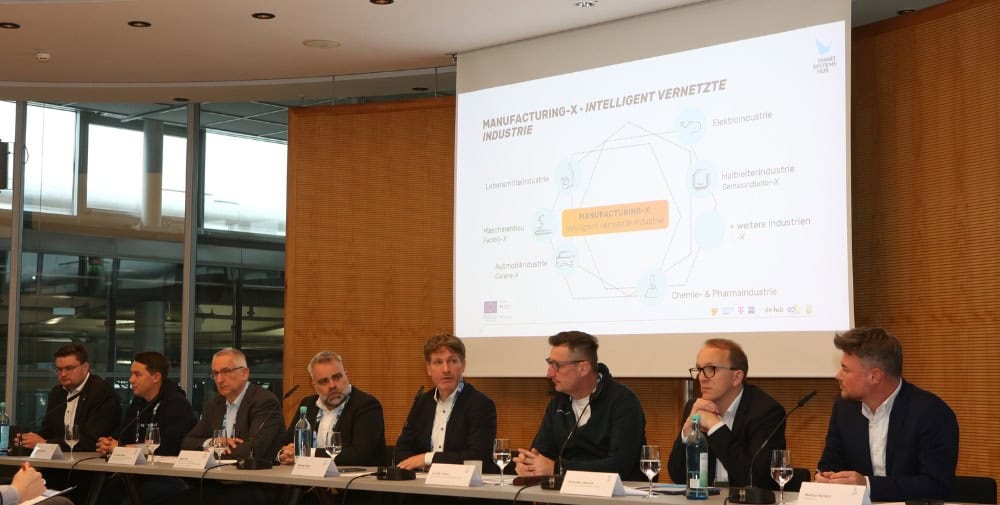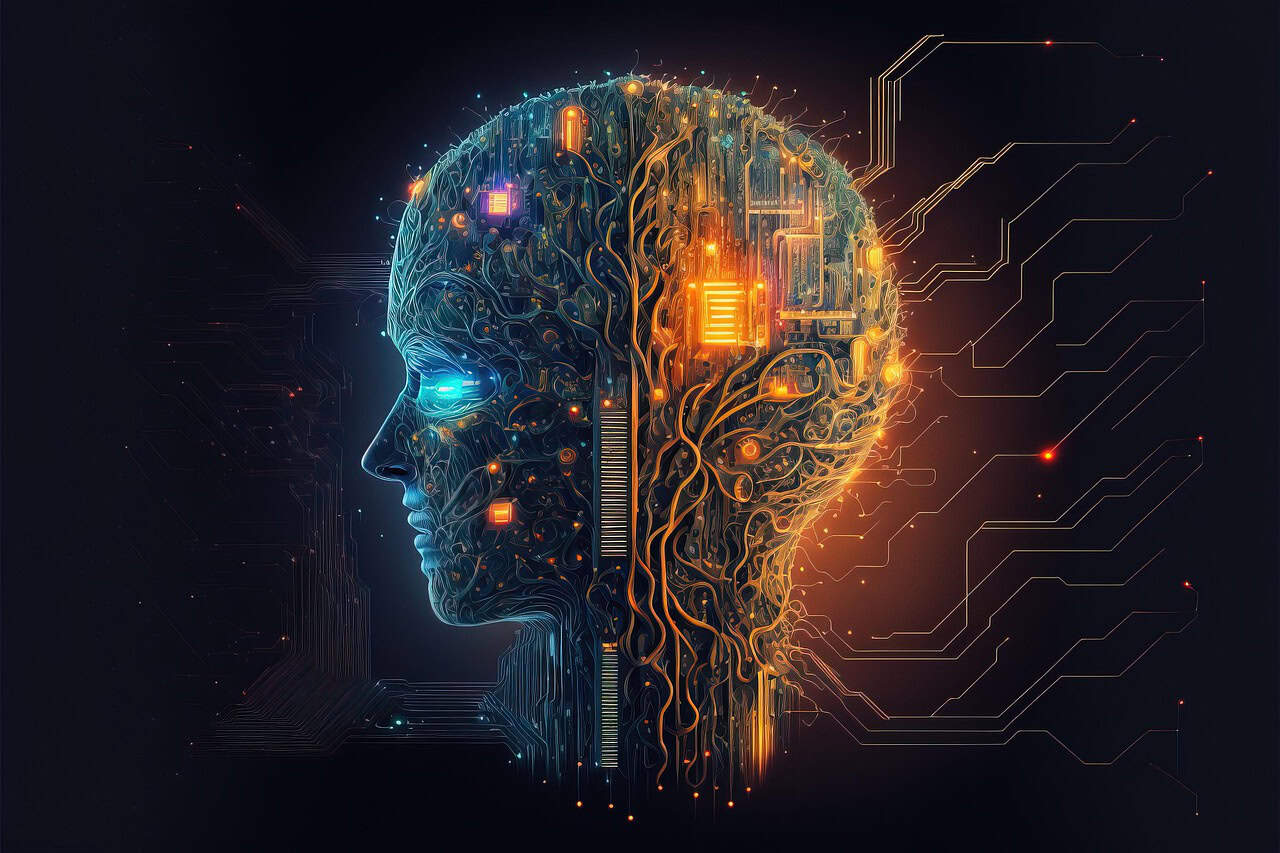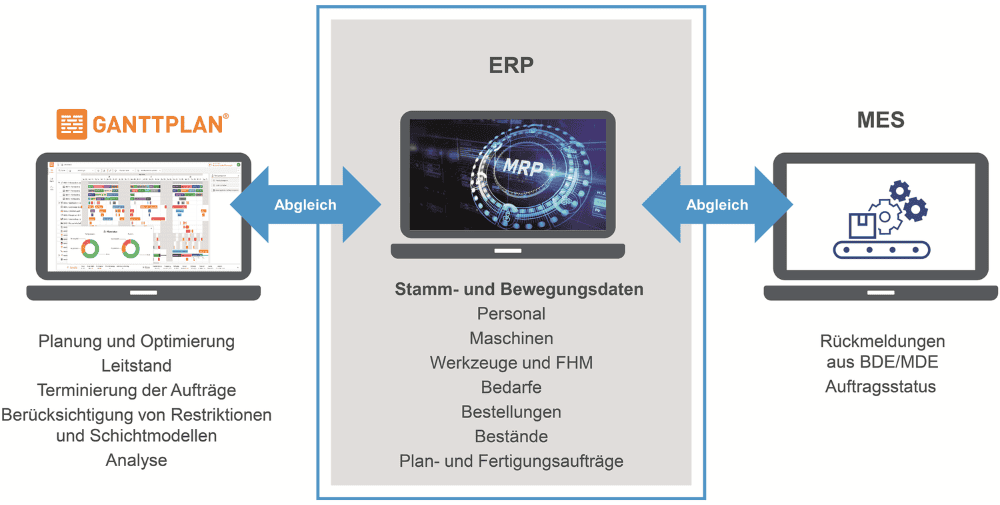A new chapter for the manufacturing industry was opened today at Volkswagen’s Transparent Factory in Dresden: the Smart Systems Hub has officially launched the Open Smart Systems Hub Community together with renowned German and European industrial companies. This pioneering initiative offers companies from the automotive, pharmaceutical, aviation, semiconductor and food industries, for example, a new type of demonstration environment for adapting their company-specific digital manufacturing processes to Manufacturing X standards.
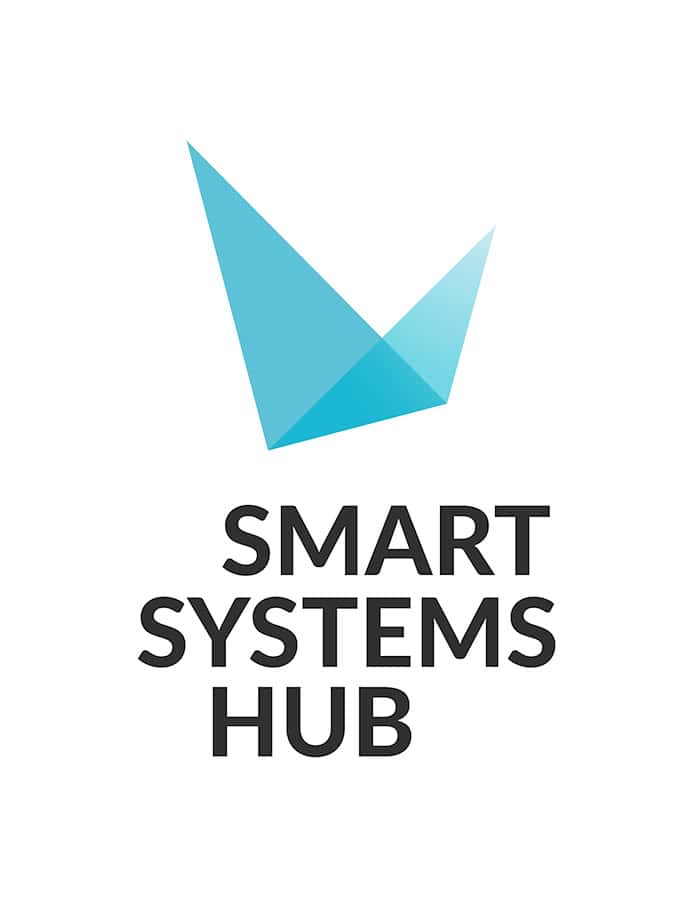
In this environment, they can test how data can be used and exchanged efficiently in digital ecosystems. The platform was extensively tested as part of the Thin[gk]athon innovation format, which lasted several days in early November 2024. The partners of the Smart Systems Hub shared initial practical insights into their work and the operation of the demonstration environment.
This was made possible by the Factory-X lighthouse project funded by the Federal Ministry for Economic Affairs and Climate Protection. It is part of the larger Manufacturing-X initiative, which aims to create an open, cross-industry data ecosystem for the manufacturing industry. As part of Factory-X, the Smart Systems Hub was commissioned to set up and operate a new type of test and demonstration environment. The demonstration environment provides the necessary technical infrastructure and supports the integration and validation of use cases. The aim of the cross-industry collaboration is to drive forward the digital transformation of the manufacturing industry through efficient requirements management and optimized test processes. The Manufacturing-X demo landscape was set up in just a few months. The platform is based on the architecture of Catena-X, the collaborative and open data ecosystem developed for the automotive industry. However, the technological approach of Factory-X goes far beyond Catena-X: while Catena-X focused exclusively on the horizontal supply chain, the Factory-X demonstration environment complements this with the vertical integration of production data for the first time. This means that the processes can now be integrated directly into the production level and right through to the companies that supply the production equipment. To illustrate this, the first concrete use cases have already been implemented in the demonstration environment, demonstrating the potential of this extended approach in practice.
Demonstration environment based on Catena-X experience
The demonstration environment of the Open Smart Systems Hub Community represents a decisive step in the networking of global manufacturing companies. The platform enables a simple and standardized exchange of information between the supply and value chains of various industrial data ecosystems, including Catena-X for the automotive industry, Semiconductor-X for the semiconductor industry, Robotics for automation and robotics and Aerospace-X 2 for aerospace. It also networks machines and systems along the entire production chain and makes optimum use of the data generated by these systems.
The technical basis of the Open Smart Systems Hub Community platform is based on the European principles of Gaia-X and the International Data Spaces Association (IDSA). The demonstration environment uses a decentralized architecture consisting of core services, business applications and various operators and was developed according to open source principles. In practice, the demonstration environment offers a wide range of functions: It enables seamless tracking of products and materials along the supply chain, supports collaboration in product development and promotes sustainability through comprehensive supply chain documentation. The platform also offers solutions for recording the carbon footprint and managing business partner data.
The Manufacturing-X demo environment was set up in just a few months together with 46 project partners and 10 associated partners from the plant and mechanical engineering sector as well as other players such as Prostep, a leading company in the field of product lifecycle management (PLM) and digitalization for the manufacturing industry. The platform offers a unique test environment for advanced manufacturing technologies. The close cooperation with Confinity-X ensures a seamless transition from the test phase to subsequent operations right from the start.
The Open Smart Systems Hub Community: A platform for practical innovation
With over 700 partners from industry, start-ups and research institutions, the Open Smart Systems Hub Community brings together leading experts to drive forward the digital transformation of the manufacturing industry. The community uses Manufacturing-X as a technological foundation and develops applications that create new business models and efficiently network value chains. “Our goal is to create an environment in which innovations can be realized quickly and efficiently,” says Michael Kaiser, Managing Director of the Smart Systems Hub. “This community brings together the brightest minds to jointly develop practical solutions for the manufacturing challenges of tomorrow.”
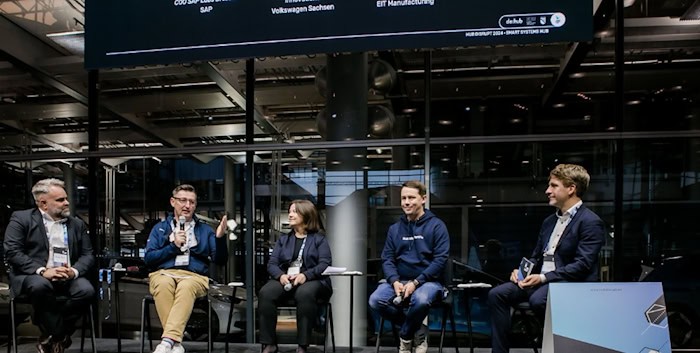
Hub:Disrupt 2024: The results of the Thin[gk]athon were presented at the Smart Systems Hub event.
Manufacturing-X: The future of manufacturing is networked
Manufacturing-X lays the foundation for the next generation of industrial production. The standardized, digital infrastructure connects companies along the entire value chain, creating the basis for increased efficiency and the development of new business models. The Open Smart Systems Hub Community uses this infrastructure to further develop technologies such as “Decentralized Network Enablement” and Digital Twins. “With Manufacturing-X, we are establishing new sovereign data exchange formats for the industry based on European values such as transparency, controllability, portability and interoperability. Thanks to our community, this vision is now becoming a reality and we can realize the first practical applications in a collaborative and implementation-oriented manner,” explains Mirko Paul, Head of Industry Cloud Architecture at SAP. 3
Collaborative infrastructure for a competitive advantage: using technologies instead of developing new ones
The Open Smart Systems Hub Community is based on a decentralized and open approach that focuses on collaborative cooperation. Based on the open source principle, it brings together companies, start-ups, innovators and researchers to tackle technological, legal and economic challenges holistically. “We rely on the power of collaboration. Our structure allows us to learn faster and be more innovative while making the most of the potential of existing technologies,” explains Michael Kaiser. Instead of creating new infrastructures, the community focuses on optimizing and integrating existing technologies. In close cooperation with the Digital Hub Initiative and the European Digital Innovation Hubs, it connects companies, technology providers and research institutions. This collaborative infrastructure strengthens Europe’s position in the global innovation competition.
Learning and innovating in real time
A key element of the community is its ability to learn quickly and drive innovation. Supported by Generative AI, new approaches can be efficiently tested and validated. The hub:stations play a crucial role in this. These are real innovation spaces that are distributed across Germany, Europe and worldwide, similar to the global supply chains of the manufacturing industry. These hub:stations are closely adapted to the requirements of the modern production landscape and serve as hubs in a global co-innovation network. In addition to four partners in Germany, hub:stations in the Czech Republic, France and East Asia were acquired for cooperation in the first test phase. Creative phases and innovation sprints regularly take place here, transferring theoretical knowledge into practical applications. Networking these locations with the Open Smart Systems Hub community creates a globally distributed, open ecosystem for co-innovation and promotes collaboration across geographical borders.
A global thin[gk]athon in June 2025
In June 2025, the Smart Systems Hub will host a Thin[gk]athon, bringing together creative minds from the manufacturing industry to develop new practical solutions for the manufacturing industry. In a global, decentralized format, participants work in hub:stations around the world to design an open, networked platform for production and the meaningful use of data. The aim is to develop approaches for resilience, sustainability and interoperability through collaborative innovation. The results, progress and exciting case studies will be presented at the hub:disrupt co-innovation festival in November 2025. The experiences and use cases will further strengthen the acceptance of Manufacturing-X in user industries worldwide.
The Open Smart Systems Hub community is a movement that drives sustainable innovation in the areas of technology, business and ecology. “We invite everyone to become part of this movement and work together towards a future in which smart systems are used efficiently and sensibly”, explains Michael Kaiser, adding “With our name ‘Open Smart Systems Hub Community’, we stand for the values of openness, collaboration and an enthusiasm for innovation”. 4
_ _ _ _ _ _
About Smart Systems Hub
The Smart Systems Hub is one of Europe’s largest innovation centers in the field of industrial automation. It supports companies and organizations in innovation processes and the implementation of new technologies. Backed by a strong network of over 700 partners and with expertise in various key technologies, the Smart Systems Hub develops system solutions in co-innovative projects that are tailored to the individual needs of its customers. In addition to technological know-how, great importance is attached to the right methodology. Agile and creative concepts are used to ensure a successful innovation process – quickly and efficiently.
_ _ _ _ _ _
Further links
👉 www.smart-systems-hub.de
Photos: Smart Systems Hub
_ _ _ _ _ _
Note to the text
This is an automatic translation with DeepL.com. Read the original text in German.
